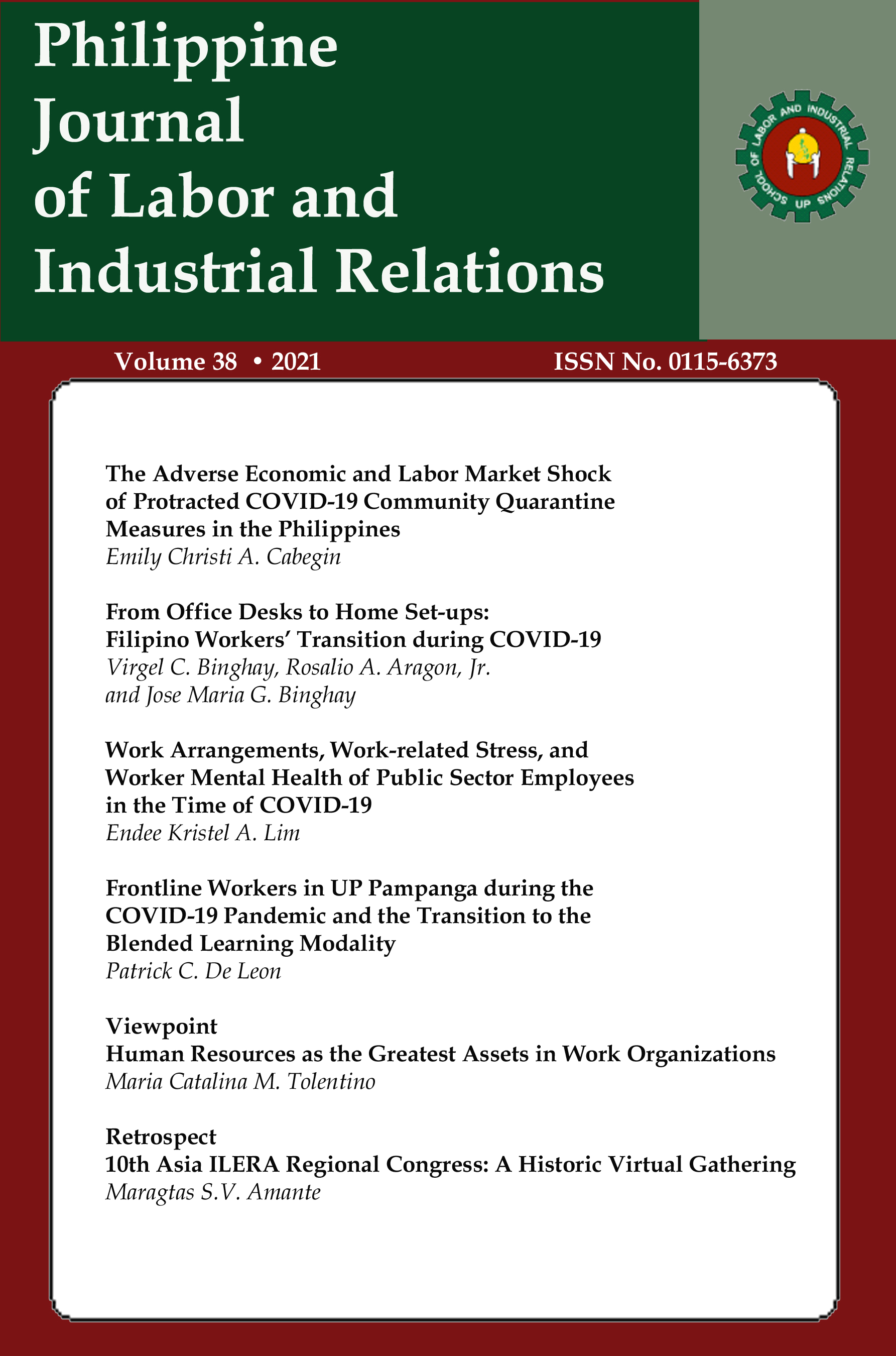The Adverse Economic and Labor Market Shock of Protracted COVID-19 Community Quarantine Measures in the Philippines
Abstract
The paper examines the negative shock of stringent longrunning stay-at-home measures to suppress the COVID-19 contagion on the Philippine economy and the labor market in 2020. The protracted economic lockdowns plunged the Philippine economy into its deepest recession in the postwar period with GDP annual growth declining at -9.6% in 2020 setting back the Philippine economy by several years. The supply shock created from mandated business closures and travel restrictions engendered a demand shock when the extended lockdowns triggered a massive loss of jobs, work hours and incomes, and reduced labor quality and aggregate labor productivity. The drop in GDP in 2020 was largely explained by the plummets in both investment and household consumption spending. The hardest hit industries included construction and manufacturing and travel and tourism-related services. The pandemic-induced economic recession exacerbated the already elevated levels of youth unemployment and adult underemployment. Regions that were affected disproportionately by the COVID-19 crisis were those that imposed the longest strict lockdowns as indicated by the percentage decline in work mobility rates, and those that were heavily dependent on the most severely affected industries. The paper cautions the government against imposing prolonged intense lockdowns across the nation or major island groups without due consideration of their longterm effects on the economy and human capital.


